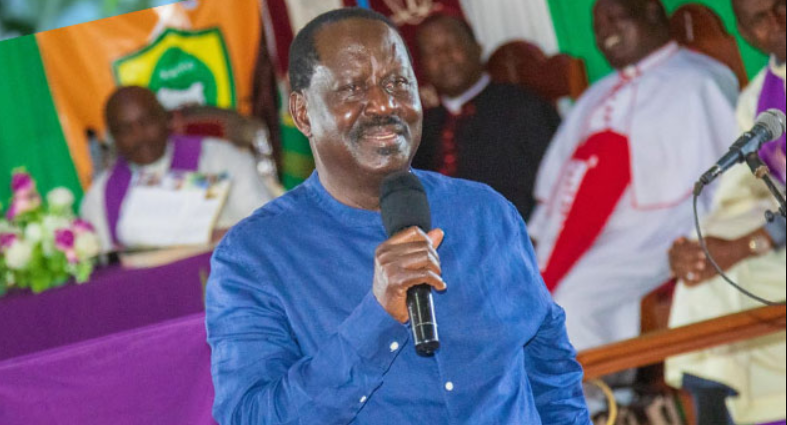Azimio La Umoja coalition leader Raila Odinga has raised serious concerns about a government-to-government deal involving Kenya and Saudi Arabia, asserting that it’s not only a major scam but is also causing a surge in fuel prices.
Speaking at a press conference hosted by the Jaramogi Oginga Odinga Foundation, Raila disclosed that the secretive agreement, purportedly signed to ease Kenya’s fuel crisis, was struck between the Energy Ministry and state-owned entities in the Middle East.
Raila emphasized that the so-called government-to-government deal was a misleading characterization, crafted to exempt specific Kenyan companies from a 30% corporate tax.
He challenged the validity of the agreement, stating, “There was no G-to-G. Kenya did not sign any contracts with Saudi Arabia or the UAE.”
Despite promises that the deal would alleviate the fuel crisis, Raila pointed out that fuel prices hadn’t decreased, and the Kenyan shilling continued to depreciate against the dollar.
He questioned the selection of local distributors, accusing them of selling oil at nearly double the price charged by bulk suppliers.
Raila highlighted concerns about Oryx Energies, Gulf Energy, and Galana Oil Kenya Ltd, alleging that these “handpicked distributors” were selling oil at inflated prices.
He revealed that Oryx Energies was permitted to sell oil at prices inflated by 17% just four months after the deal was initiated.
The opposition leader also criticized the Energy Ministry’s decision to manipulate billing months, resulting in higher fuel costs nationwide.
Additionally, Raila expressed worries about Uganda seeking alternative petroleum sources due to alleged price hikes by Kenyan middlemen, which, according to him, are government officials inflating prices by up to 59%.
Calling for a revocation of the government-to-government deal in favor of a previous competitive procurement model, Raila urged the involvement of Kenya’s anti-graft agency to investigate the terms of the agreement and the entities benefiting from it.
He insisted on scrutinizing the tax compliance of the involved companies and demanded a comprehensive assessment of the repercussions of Uganda’s shift in petroleum procurement on the Kenya Pipeline Company’s future.
Malawi’s President Implements Cost-Cutting Measures Amid Economic Challenges
